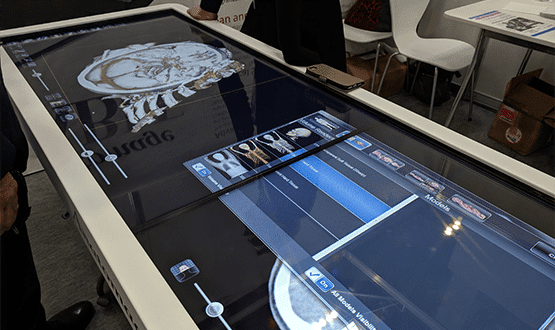St George’s clears Millennium backlog
- 1 November 2010
St George’s Hospital NHS Trust says it has cleared the backlog of administrative work resulting from implementing Cerner Millennium and expects to soon be able to track 18-week patient waits in all its specialities.
The trust has been unable to effectively track 18-week waits since going live with Cerner in April, and experienced problems with data entry and staff finding new workflows impractical.
The trust says the backlog of administrative work within the Cerner PAS has now been cleared and it is now planning a “remedial investment” to optimise the system to “simplify workflows for staff and improve administrative and clinical coding accuracy”.
Latest trust board papers says that since the implantation of iClip, the trust’s name for the Cerner Millennium care records service project, “it has not been possible to produce a patient tracking list of sufficient quality”.
The trust says this has had a knock on effect on tracking patient waits: “This has meant that booking staff are not able to refer to completely accurate information on patient waits.”
Official trust figures show that it is not achieving national targets on 18-week waits. “In some specialities this has resulted in the number of patients booked beyond 18 weeks being higher than the 10% threshold.”
Work is, however, underway to introduce of an accurate patient tracking list, “each under-performing speciality is producing an action plan to address specific bottlenecks in the patient pathway”. Trust board papers do not make clear whether the problems stem from software issues or data recording.
The trust said in a statement to EHI: “Any administrative backlog of patients within Cerner PAS has been cleared, and our planned remedial investment has focused on optimising the system, reviewing our administrative processes at care group level in a systematic way to simplify workflows for staff and improve administrative and clinical coding accuracy.”
It added: “Like other large acute teaching hospitals, St George’s experiences 18 week pressures in two or three key specialties.”
The latest difficulties follow earlier teething problems. In August EHI reported that the trust had been experiencing difficulties with the new iClip system since go live. The trust said the system was creating difficulties in tracking patient notes in some areas and in managing outpatient appointments; creating backlogs of work that required extra staff to deal with.
Problems with tracking and reporting on 18-week waits had been known to exist with the Cerner system since at least 2008, but were meant to have been fixed in a programme of remedial action by prime contractor BT and Cerner. Barts and The London, which went live with Cerner Millennium in 2008, spent more than a year unable to report on whether it was complying with the 18-week target.
Although 18-week waits was dropped as a ‘must achieve’ monthly target for trusts by the Coalition Government in May, it remains a key performance indicator that trusts report against and a part of the NHS Constitution.
Previously St George’s has also reported problems with reduced income due to difficulties in coding. These problems are now said to be improving. “In month income improved considerably on the back of iClip data catch up and recoding and is now £1.2m ahead of target,” say trust board papers.
The trust hopes to move onto the next phase of the Cerner implementation in 2011. “The second phase aims to deliver significant clinical functionality, including diagnostic ordering and results reporting, electronic prescribing, a specialist critical care module, clinical assessments, electronic communications with GPs and full theatre scheduling,” said the trust.
St George’s April go-live, coming months after Kingston Hospital’s, was vital to helping ensure BT was able to secure a new LSP deal – CCN3 – in March, just ahead of the UK General Election and subsequent deep cuts in public spending.
No London trust has implemented Cerner Millennium from BT since St George’s went live in April. St George’s followed in the footsteps of Kingston Hospital, which had an uneventful go-live in November 2009.
The next trust due to take the system St Mary’s, part of Imperial College, which has repeatedly put back go-live dates since cancelling its go-live in August 2008.




